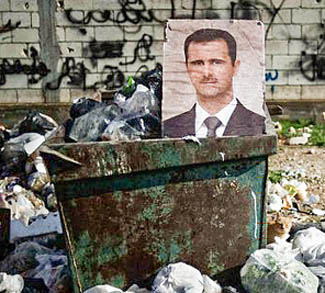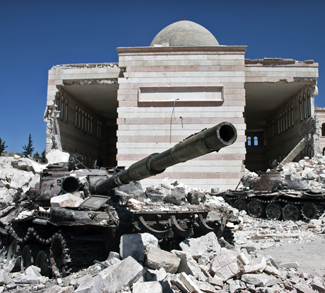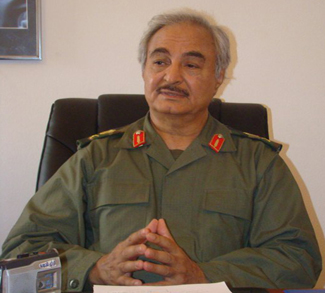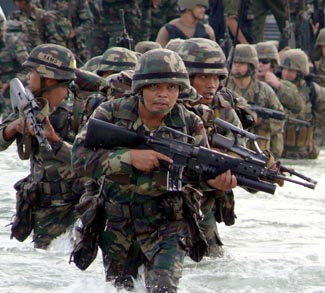The fall of the Mastouma army base effectively solidifies Islamist control of Idlib province just a month after the provincial capital fell to rebel forces. With Idlib under rebel control, the al-Assad stronghold of Latakia is within striking distance.
Attacks on Latakia would threaten key Alawite support for the ongoing war. This Shi’ite sect that President al-Assad belongs to has been the regime’s most staunch backer since hostilities broke out in 2011, at least partially out of fear of the bloody reprisals that would occur should the government fall to Sunni Islamist groups. This support has come at a major human cost, with an estimated one-third of all Alawite males having been killed in the conflict so far.
The “Army of Conquest” coalition between major Islamist groups Jabhat al-Nusra (the al-Nusra Front) and Ahrar al-Sham continues to make advances on the battlefield at the expense of the regime. With government forces tied up defending against pushes by the Army of Conquest, Islamic State (ISIS) has launched a successful offensive aimed at consolidating its holdings in eastern Syria, which would allow for a slow advance along the central Syrian corridor towards Homs. It is this offensive that is threatening the ancient ruins in Palmyra, a city that lies on the road between Homs and Deir-ez-Zur (also the scene of an ISIS push against Assad’s forces beginning on May 6th, which seems to have succeeded in pushing them back).
There are two major reasons why Assad is on the retreat. For one there’s the human cost of a conflict that has dragged on for four years with no end in sight. The regime’s manpower pool with which to replenish lost troops is finite, and so is its economic means to arm, transport, and feed them, speak nothing of the country’s long-suffering population. The longer the war drags on, the more it favors the Islamist guerrillas – not only in logistics, but ideology as well. Consider the motivations involved: one side is fighting to keep the Assad dynasty intact and the other is pursuing a messianic impulse to establish a caliphate and return to a utopian state of purity. It goes without saying that the latter is more resilient after years of deprivation and attrition.
But there is also a geopolitical angle from which to view recent developments. Over the past few months, the Army of Conquest has surprised many by not only uniting a diverse and often antagonistic field of Islamist outfits (some terrorist groups according to the United States, some not), but making them a decisive player on the battlefields of northern Syria. Such harmony and tactical coordination have led many to surmise that there’s a stronger foreign hand in these events; or hands, as Saudi Arabia, Turkey, and Qatar seem the most likely group of backers. This would seem to coincide with overtures King Salman has made to his Turkish and Qatari counterparts – all of whom have made clear their desire for regime change in Syria.
The Lausanne Accord and looming rehabilitation of Iran into international society has resulted in a predictable shift in Saudi policy – one that coincides with the ascendance of King Salman to the Saudi throne in January 2015. It would appear that the US-Saudi alliance is withering, and in preparation for an Iran unrestrained by international sanctions, the Saudi regime is pushing back against Iran’s regional interests on all fronts. One facet of this is Yemen, where we saw an ambitious though ultimately ineffective air campaign launched by Saudi Arabia in response to gains by Iran-backed Houthi rebels. Another is Syria, where Saudi-Qatari-Turkish support for anti-government rebels will drag out the war and in doing so sap Iranian resources (Tehran continues to supply electricity, troops, and financing to the beleaguered Assad regime).
Neither Riyadh nor Ankara seem terribly concerned about what US authorities have to say about their backing an al-Qaeda affiliate in the al-Nusra Front (conveniently obscured/rebranded into the umbrella organization of the Army of Conquest). This may well be the substantive slight to go along with the symbolic one of Saudi Arabia’s recent no-show at President Obama’s summit.
A long war ahead
Even though Assad’s forces are on the retreat, this doesn’t meant that the war will be ending anytime soon. The next phase of the conflict will likely see Aleppo falling to Islamist rebel forces and government troops being redeployed towards Damascus. What follows would be several more years of civil war as the antagonists consolidate control over their territories and the wax and wane of battle becomes less fluid. Even if one were to break through and sack Damascus, they would still be susceptible to counterattack and a renewed cycle of conflict since no party has the legitimacy to extend its rule over the entire country.




